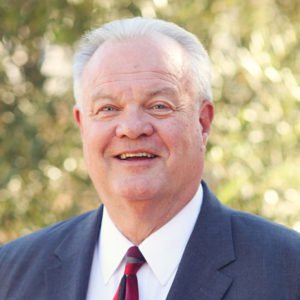Larry and Alice Parker wanted God’s best for their family of six. But their oldest son suffered from diabetes and regularly received insulin injections. When Daniel Badilla held special services in their Barstow, California church, the Parkers “walked the aisle” with 11-year-old Wesley. They sincerely sought a healing miracle. The preacher pronounced Wesley healed. Larry joyfully entered, “Praise God our son is healed!” into Wesley’s insulin log. But Wesley’s next insulin test indicated differently. Yet, by faith, the Parkers claimed the healing and blamed the unexpected insulin results on Satan.
Shortly afterward, Wesley began to suffer the nausea and severe stomach cramps that predictably indicated low insulin. Larry and Alice postponed medical treatment and sought God’s continued healing power through prayer. In spite of their sincere faith, Wesley fell into a coma and died three days later. Newsweek magazine reported the tragedy nationally (cf. “The Exorcist,” Newsweek [September 10, 1973], 31).
A lawyer in Indiana later shared a letter with me that he received from Larry Parker (with Larry's permission). Years had passed since Wesley’s death. During that time, Larry struggled for the truth and found it only as he sought full scriptural counsel. He wrote:
I am writing this letter with the hope and prayer that somehow I can share with you a lesson that I have learned at great expense. It is only by the grace of God, and the never-failing, all-encompassing love of Jesus Christ our Lord that my wife and I have been able to come through this trial. . . . We wanted to see our son healed, but went about it the wrong way. It was during our trial for involuntary manslaughter and felony child abuse that my wife felt she could tell me what the Lord had shown her. She told me that our love, because it was lacking, failed Wesley, and that God’s word says, “Love never faileth” (1 Corinthians 13:8).
I knew then that we had allowed what we thought was faith to cause us to forget to love. As we prayed for Wesley and saw him in obvious pain, our love for him wanted to give him the insulin that we knew would stop his suffering. However, we felt that would be a lack of faith, and would cost him his healing. We learned that our actions were contrary to what the Scriptures say. God’s Word says that love is greater than faith (1 Corinthians 13:8).
The trouble lies with the fact that we confuse faith and belief. We think that if we believe hard enough, the healing will take place. We tie healing to some ability on our part to believe enough, i.e., to have enough faith. To withhold medicine, especially life-giving medicine, is a very presumptuous act on our part that actually hinders the Spirit of God from His work. My prayer is that you will consider these thoughts at length, for they have come at an incomprehensible price that no one would voluntarily pay. (Cf. Larry and Alice Parker, We Let Our Son Die [Irvine, CA: Harvest House Publishers, 1980]).
I am deeply moved by Larry’s honesty, not to mention the excruciating pain he suffered. The issue could not be more real, for the lives of loved ones are at stake. God can, has, and does heal, but always for His own purposes, in His own way, and at His appointed time. We cannot force God to heal nor can we humanly manufacture a genuine healing experience.
Tragically, our world offers very convincing counterfeits of the real thing. Even more tragic, in our eagerness to see God work, we as Christians sometimes flock to anyone who claims a miraculous healing. In doing so, we trivialize genuine divine healing—we accept man’s deceitful illusions in place of God’s divine intervention.
An honest and complete examination of the defining Scriptures (Isa 53:4–12; 1 Cor 12:9, 28, 30; James 5:13–20; 1 Pet 2:24–25) demonstrates that there is no biblical basis for a ministry of miraculous healing directly through a human healer today. That ceased with the apostolic age. Alleged contemporary faith-healing ministries fall embarrassingly short of the biblical pattern—in purpose, time, scope, and intensity.
On the other hand, God can at times act in such ways that only His direct intervention is an adequate explanation for physical healing. Even so, healing by God’s direct intervention is not instantaneous, nor always complete. Our Lord’s unmistakable touch is not brought about by any demand, gimmick, method, or plea from a would-be healer. It is God’s response to the earnest prayer of a believer that heals a child of the King for our Lord’s glory.






